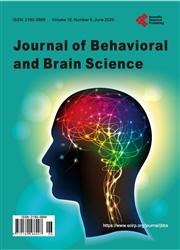Test-Retest Reliability of Sensory Evoked Potentials in Low-Functioning Autism: A Case Report
引用次数: 0
Abstract
Sensory abnormalities are common in individuals with autism spectrum disorders (ASD) but are often difficult to assess using standard behavioral methods. Evoked potentials provide objective, non-invasive electrophysiological measures of neural sensory processing that could be useful for clinical and investigative studies of individuals with low-functioning autism who are unable to perform behavioral testing. Despite increased use, the reliability of sensory evoked potentials has not been established for individuals with low-functioning autism. Establishing reliability is important for validating the utility of sensory evoked potentials. In this study, we explored the feasibility of assessing the test-retest reliability of sensory evoked potentials using repeat recordings, acquired over 2.5- and 6-month intervals, from a minimally verbal adult with low-functioning autism. Repeat auditory and visual evoked potential recordings showed high test-retest reliability, with cross-correlation coefficients ≥ 0.80. This case demonstrates the feasibility of establishing test-retest reliability for individuals with low-functioning autism and supports the utility of sensory evoked potentials in clinical and investigative ASD studies.低功能自闭症感觉诱发电位的测试-再测试可靠性:一例报告
感觉异常在自闭症谱系障碍(ASD)患者中很常见,但通常很难使用标准的行为方法进行评估。诱发电位提供了客观、非侵入性的神经感觉处理电生理测量,可用于无法进行行为测试的低功能自闭症患者的临床和调查研究。尽管使用量增加,但尚未确定低功能自闭症患者的感觉诱发电位的可靠性。建立可靠性对于验证感觉诱发电位的效用非常重要。在这项研究中,我们探讨了使用重复记录来评估感觉诱发电位重测可靠性的可行性,重复记录是在2.5个月和6个月的时间间隔内从一名患有低功能自闭症的言语能力最低的成年人身上获得的。重复的听觉和视觉诱发电位记录显示出较高的重测可靠性,互相关系数≥0.80。该病例证明了为低功能自闭症患者建立重测可靠性的可行性,并支持感觉诱发电位在临床和研究性ASD研究中的应用。
本文章由计算机程序翻译,如有差异,请以英文原文为准。
求助全文
约1分钟内获得全文
求助全文

 求助内容:
求助内容: 应助结果提醒方式:
应助结果提醒方式:


